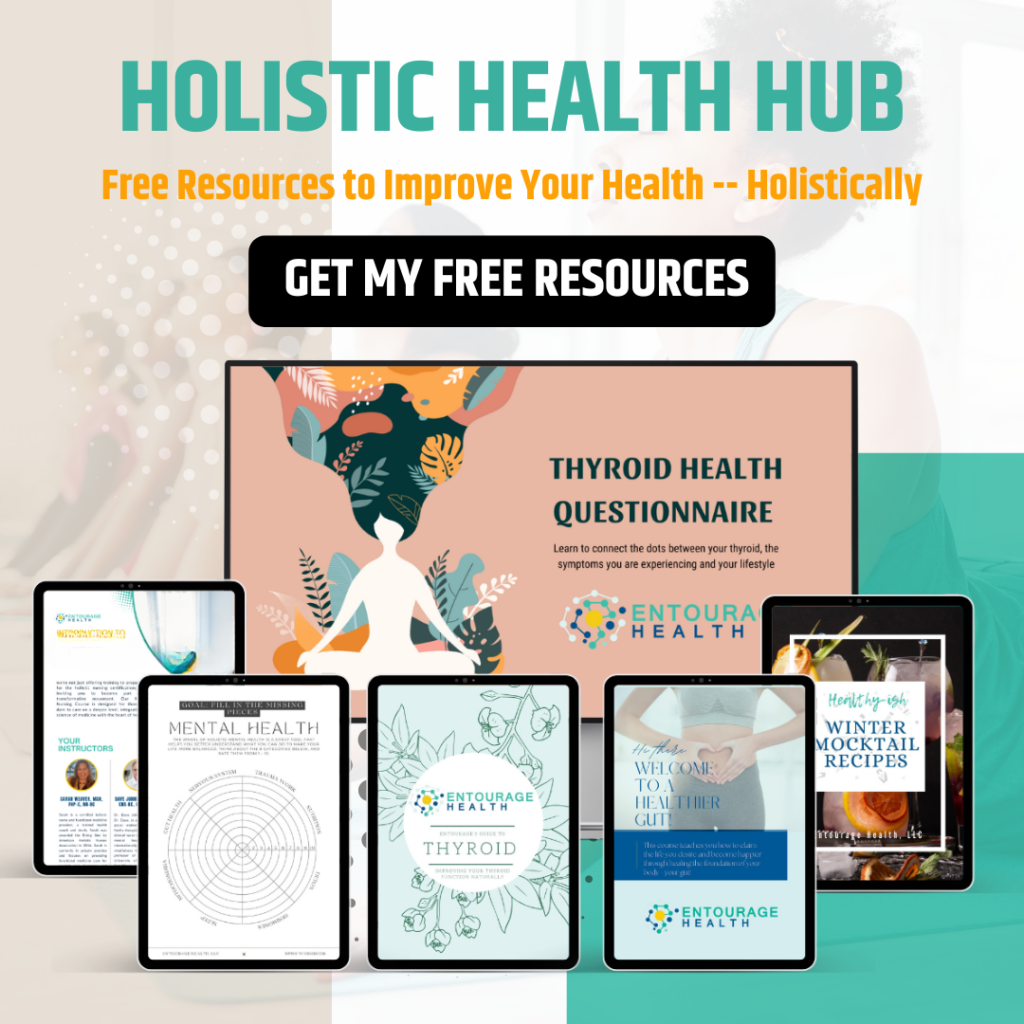Thyroid function affects your mood, energy and ability to lose weight
The thyroid is a small gland in the neck that produces hormones. It has two main functions: to control the rate at which our bodies use energy, and to help regulate protein synthesis. When it doesn’t work properly, it causes problems with both of these things. The most common symptom of hypothyroidism is fatigue, but there are many others as well. An underactive thyroid can also lead to constipation, joint pain, brittle nails and hair loss—just to name a few!
The thyroid is the master regulator of metabolism, energy and weight.
The thyroid gland is a master regulator of metabolism, energy and weight. It makes two hormones that travel through your bloodstream: T3 (triiodothyronine) and T4 (thyroxine). These hormones affect every cell in your body by changing how much oxygen they use, how fast they burn fuel and whether they store fat or burn it for fuel.
The most common cause of hypothyroidism is Hashimoto’s thyroiditis — an autoimmune disorder where antibodies attack the thyroid gland itself. It can also be caused by iodine deficiency or radiation exposure after an accident like Chernobyl (this was seen with children who were exposed as infants).
Hyperthyroidism means that too many active T3/T4 hormones are being released into circulation at any given time; this condition usually has more than one cause but most often occurs when nodules develop on top of a normal-sized thyroid gland due to inflammation from infections such as Lyme disease or mononucleosis virus infection (Epstein-Barr virus), which then produce excess amounts of hormone production within those nodules themselves due mostly likely because there’s nothing else left inside them except cells called “parafollicular cells” which are responsible for producing calcitonin–a hormone that helps regulate calcium levels inside our bodies without having much control over anything else besides bone growth development during puberty years when puberty begins happening earlier than normal due to environmental factors affecting our children today including heavy metals toxicity causing premature puberty onset among girls ages 9-11 years old instead 12+ years old like before 1980s when my mom grew up during 1970s childhood period before 1980s started changing things up dramatically so now today kids today face different type challenges than ever before due not just genetics but also environmental factors like pollution levels increasing faster than ever before causing harmful effects on human health…
Most thyroid conditions are caused by autoimmunity.
If you’re like most Americans, you probably have some idea of what autoimmune thyroid disease is. Autoimmune thyroid disease (AITD) is the most common autoimmune disorder in the United States, affecting about 10% of all women and almost 3% of men by age 60. It’s caused by your body attacking its own thyroid gland because it mistakes it for a foreign invader–usually an infectious agent like bacteria or virus. The result can be either hypothyroidism (underactive thyroid) or hyperthyroidism (overactive).
Autoimmune conditions can also affect other organs besides your thyroid gland: lupus, rheumatoid arthritis, psoriasis and Sjogren’s syndrome are all examples of this phenomenon at work on other parts of your body besides just your endocrine system–which includes glands like your pituitary gland that produce hormones directly related to metabolism such as cortisol; growth hormone; insulin; prolactin (which helps support lactation); gonadotropins which control reproductive function in both men and women; parathyroid hormone which regulates calcium levels throughout our bodies…

Fatigue is one of the most common symptoms of a thyroid deficiency; many people with even mild hypothyroidism may suffer from fatigue for years before their diagnosis.
Fatigue is one of the most common symptoms of a thyroid deficiency; many people with even mild hypothyroidism may suffer from fatigue for years before their diagnosis. The physiological processes that cause this fatigue can vary from person to person, but there are some general causes that apply to most people:
- When you’re underactive and your body isn’t getting enough energy, it might feel like all your cells are running out of gas. This can make simple tasks feel difficult or impossible, so you might be tempted to take naps during the day (or at night).
- Your muscles may also feel weak, making exercise more difficult than usual. If you don’t get enough exercise and movement in general, this will make recovery even slower!
Autoimmune thyroid disease can manifest in two different ways – Graves or Hashimoto’s. Graves’ disease can cause the thyroid to grow in an irregular way, which can lead to hyperthyroidism (too much thyroid hormone). Hashimoto’s is when the body is attacking and destroying the thyroid, which leads to low thyroid hormone.
Autoimmune thyroid disease can manifest in two different ways – Graves or Hashimoto’s. Graves’ disease can cause the thyroid to grow in an irregular way, which can lead to hyperthyroidism (too much thyroid hormone). Hashimoto’s is when the body is attacking and destroying the thyroid, which leads to low thyroid hormone.
Graves’ disease occurs when your immune system attacks your own tissues by mistake. This causes your body to produce too much of a particular type of protein called TSH receptor antibodies that attach themselves to receptors on cells in your thyroid gland and prevent them from making T3 and T4 hormones. The result? You have too much T3 and T4 circulating through your bloodstream which results in symptoms like fatigue, weight gain, irritability/anger/depression — all because there isn’t enough energy being produced by these cells!
Leaky gut syndrome (LGS) is the main driver for autoimmunity and inflammation. LGS is triggered by stress, inflammation, bacteria, viruses and toxins. Your gut lining breaks down and large molecules of stool can be absorbed into your bloodstream and trigger immune system attacks on other parts of your body.
Leaky gut syndrome (LGS) is the main driver for autoimmunity and inflammation. LGS is triggered by stress, inflammation, bacteria, viruses and toxins. Your gut lining breaks down and large molecules of stool can be absorbed into your bloodstream and trigger immune system attacks on other parts of your body.
To support your thyroid health, it’s important that you heal your leaky gut so that you can get back to feeling like yourself again!
Making dietary changes and taking supplements can help support thyroid health. Here are some steps you can take:
- Invest in advanced functional medicine testing to personalize diet and supplements.
- Avoid inflammatory foods like gluten, dairy and sugar.
- Eat a phytonutrient-rich diet brightly colored vegetables, fruits, nuts and seeds.
- Take supplements to support the liver and gut (e.g., probiotics).
- Avoid refined carbohydrates such as white bread/rice/potatoes/pasta/sugar substitutes like Sweet n Low which can lead to blood sugar imbalances that are detrimental for thyroid health; instead opt for whole grains like faro & quinoa or brown rice since they contain more fiber than their white counterparts which helps keep you fuller longer so there’s less chance of overeating! Also avoid trans fats found in processed foods like margarine spreads because these have been linked with increased rates of hypothyroidism among women who consumed them regularly during pregnancy compared with those who did not consume margarine spreads regularly during pregnancy.[1]

The most common type of blood test used to diagnose hypothyroidism is a thyroid-stimulating hormone (TSH) test, which is not enough.
The most common type of blood test used to diagnose hypothyroidism is a thyroid-stimulating hormone (TSH) test. However, this is not enough to fully understand how well your thyroid is functioning. This is because TSH doesn’t tell us how much thyroid hormone is actually being produced by your thyroid gland. Other tests to consider include: Free T4, Free T4 and thyroid antibodies, nutrient markers, heavy metals and environmental toxins. I go much deeper into labs in my free thyroid guide.
Correcting toxin burden by detoxifying heavy metals, and pesticides and supporting the liver can help the thyroid function.
The liver is one of the main detoxifying organs in the body and it’s important that you support this organ with nutrients like vitamins A and B12, as well as minerals such as zinc. This can help decrease inflammation and autoimmune responses which can cause thyroid problems.
Heavy metals like mercury, lead, and arsenic are common toxins that we’re exposed to on a daily basis through our food, water supply, and environment–they interfere with hormone production in the thyroid gland by blocking iodine uptake into cells (1). Another type of toxin called agricultural pesticides has been linked to an increased risk for Hashimoto’s disease (2). If you suspect you’ve been exposed to any of these toxicants I recommend working with a functional medicine practitioner who specializes in environmental medicine so they can test for heavy metals or pesticides.
A nutrient status assessment can identify deficiencies or excesses in essential nutrients and help you determine whether your body has the building blocks it needs to function optimally.
A nutrient status assessment can identify deficiencies or excesses in essential nutrients and help you determine whether your body has the building blocks it needs to function optimally. If you are not getting enough of a nutrient, your body will have to get it from somewhere else. For example, if you have low levels of magnesium, then you may experience symptoms like fatigue or muscle cramping because there is not enough magnesium available to meet the demands of daily life activities.
If there is an imbalance between what our bodies need and what we take in from food alone (or even from dietary supplements), then we must look at other ways for supplying these nutrients such as through healthy diet choices or functional medicine interventions such as IVs which can provide high doses of certain nutrients directly into the bloodstream bypassing digestion altogether so they go straight into circulation where they are needed most.
Get my free thyroid guide!
If you have any symptoms of thyroid disease, it’s important to get them checked out by a medical professional – consider booking a discovery call to chat about your personal health journey. The good news is that there are many treatments available for thyroid conditions and they can help you feel better and live a healthy life. I also have a free thyroid guide that does a deeper dive on how to support your thyroid naturally.




